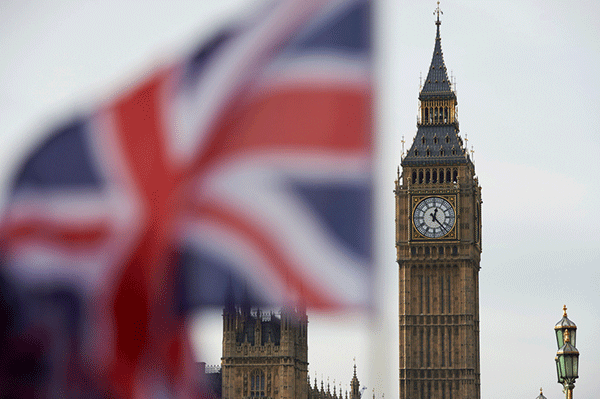Europe's shaken belief in stability
 |
|
A Union flag flies in the wind in front of the Big Ben clock face and the Elizabeth Tower at the Houses of Parliament in central London on November 3, 2016. [Photo/VCG] |
Looking back over 70 years of post-war history, most Western Europeans would conclude that political instability is something that happens somewhere else. Now, however, following the Brexit vote in Britain, a referendum upset in Italy and the prospect of untested populist politicians coming to power elsewhere in Europe, a mood of uncertainty has gripped the continent.
Europeans look warily across the Atlantic to assess the possible consequences of a Donald Trump presidency and toward Asia, where the rising power of China has surpassed that of the old continent.
We have short memories, of course. The post-war era was not quite the steady ride toward the golden uplands that is now recalled by those who yearn to go back to it. In the early 1970s, the Western world was facing the economic consequences of an oil price shock that quadrupled the cost of energy and stalled a period of rapid growth. In Europe, Spain and Portugal were still run by anachronistic dictatorships, while a junta of incompetent colonels was in power in Greece. Germany and Italy were threatened by domestic terrorism of the left and right, and even in sedate old Britain a group of superannuated officers and spies plotted a military coup against the Labour government of the day.
And, for a further decade and a half, Europe was to remain divided between East and West, living under the threat that a false step or a miscalculation could lead to a nuclear war.
At the end of the Cold War, the now much-criticized European project led to a period of cooperation and integration between the previously divided halves of the continent. The current received wisdom is that Europe is now facing a widespread revolt by those left behind in this period of rapid change. A populist, nativist sentiment is said to be replacing the liberal internationalism of those who have governed the continent for a generation.
It is a theory, of course, that is only as good as the latest election result. Brexit and the failure of Italian Prime Minister Matteo Renzi, who resigned on Thursday, to gain backing this month for his constitutional reforms appear to affirm the strength of a Europe-wide populist backlash.
- Anti-Semitism returns to haunt Europe
- Europe in the grip of protectionist mood
- Italy's Renzi formally steps down, transition cabinet expected
- Fight starts against Brexit ruling
- EU lawmaker wants transparent Brexit negotiations
- UK hopes to look at EU citizens rights early in Brexit negotiations: PM May
- 'Have cake and eat it': Is this the Brexit plan?
















